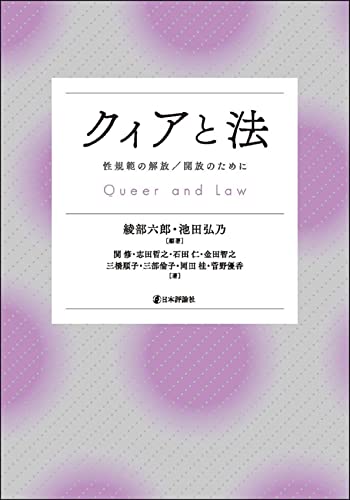2 0 0 0 OA フェミニズムと法概念論との対話に向けて ―N.レイシーの法理論を手がかりに―
- 著者
- 池田 弘乃
- 出版者
- 日本法哲学会
- 雑誌
- 法哲学年報 (ISSN:03872890)
- 巻号頁・発行日
- vol.2008, pp.140-147, 2009 (Released:2021-12-29)
In this essay, I shall explore the relationship between feminist legal theory and contemporary studies on the concept of law. I shall then .seek the possibility of more productive dialogue rather than mere accusation among themselves. Feminist legal theorists have fiercely criticized law's claim to neutrality or autonomy. Yet their attitudes toward law are diversified into the broad spectrum from the optimistic reformism within law to the detached pessimism over such legal reforms. I shall argue that feminist legal theory needs to tackle the studies of the concept of law to escape from the predicament caused by rigid dichotomy between legal optimism and pessimism. The main focus of my argument is the thoughts of normative legal positivism. Legal positivism is often caricatured and criticized as a formalistic approach which disguises gender biases behind purportedly value-neutrality. Its worth, however, must not be overlooked. There are the affinities for several themes such as anti-essentialism between legal positivism and feminism (at least concerning its post-modern strands). The appreciations of the affinities and differences deserve to a close research. In the course of argument, we can use the sketch of the problematics figured by feminist legal theorist Nicola Lacey, who has been committed to the tradition of English analytical jurisprudence and at the same time influenced by the deconstructive thought of Drucilla Cornell. To connect Cornell's utopian imagination to the actual institutional reform of the legal system. Lacey scrutinizes the argument of normative positivism, especially ethical legal positivism (EP) set out by Tom Campbell. EP encourages to engage in more radical social reform through democratic process rather than judicial process, although EP's antagonism toward judicial review of democratic legislation has a substantial danger for minority protection against the tyranny of majority. I try to show both EP’s advantages and dangers for feminist legal theory and construct a standpoint for further research.
1 0 0 0 OA ケア関係から見た婚姻制度の再検討に向けて
- 著者
- 池田 弘乃
- 出版者
- 山形大学法学会
- 雑誌
- 山形大学法政論叢 = YAMAGATA UNIVERSITY THE JOURNAL OF LAW AND POLITICS
- 巻号頁・発行日
- vol.70/71, pp.241-262, 2019-03-29
- 著者
- 池田 弘乃
- 雑誌
- 立教大学ジェンダーフォーラム年報 : Gender-Forum
- 巻号頁・発行日
- vol.14, pp.65-74, 2012
- 著者
- 綾部六郎 池田弘乃編著 関修 [ほか] 著
- 出版者
- 日本評論社
- 巻号頁・発行日
- 2019
